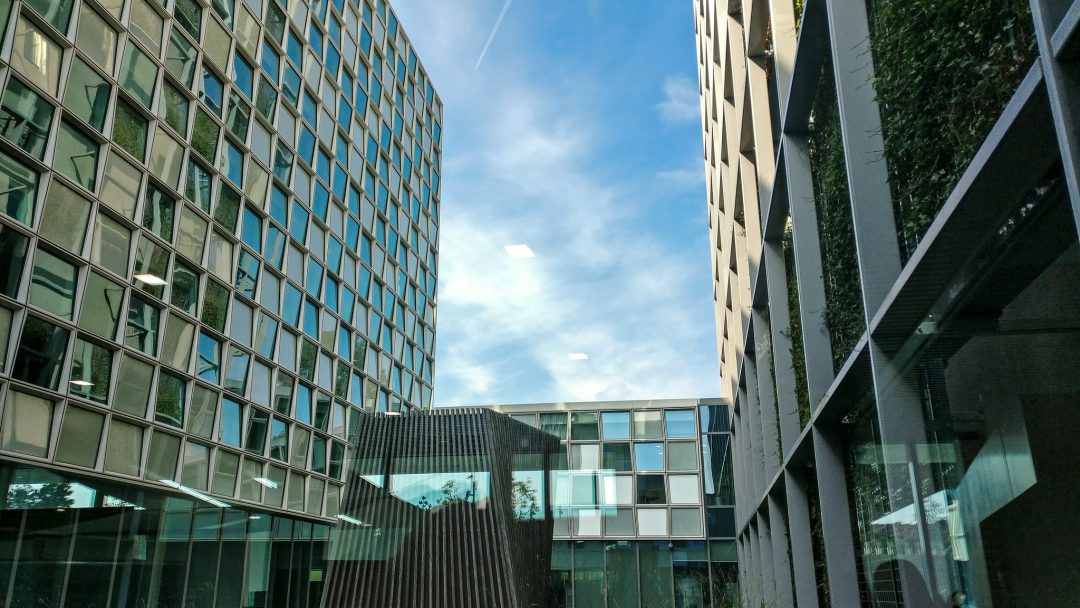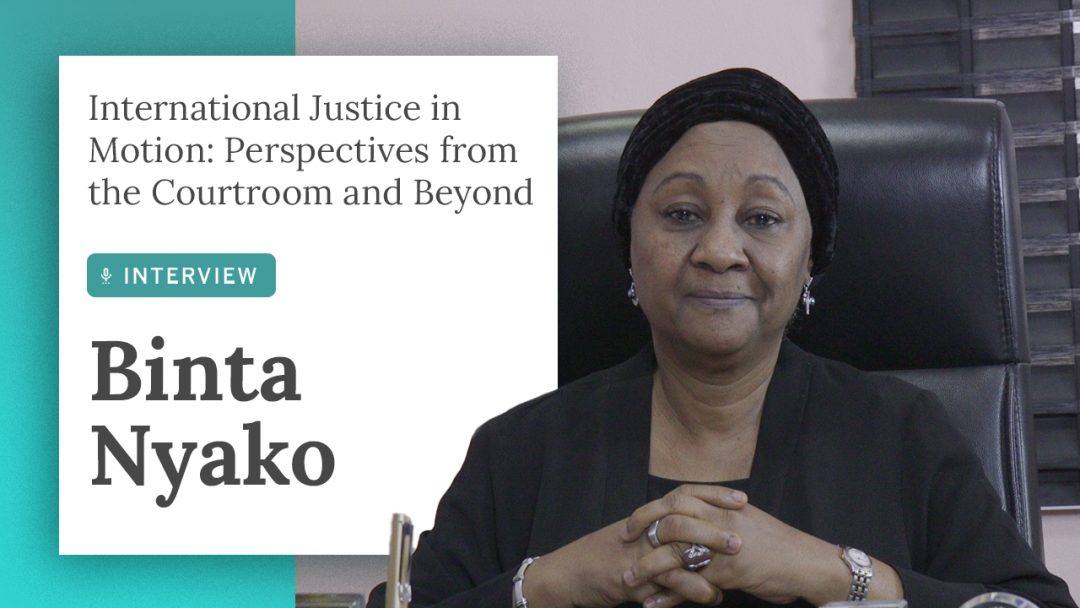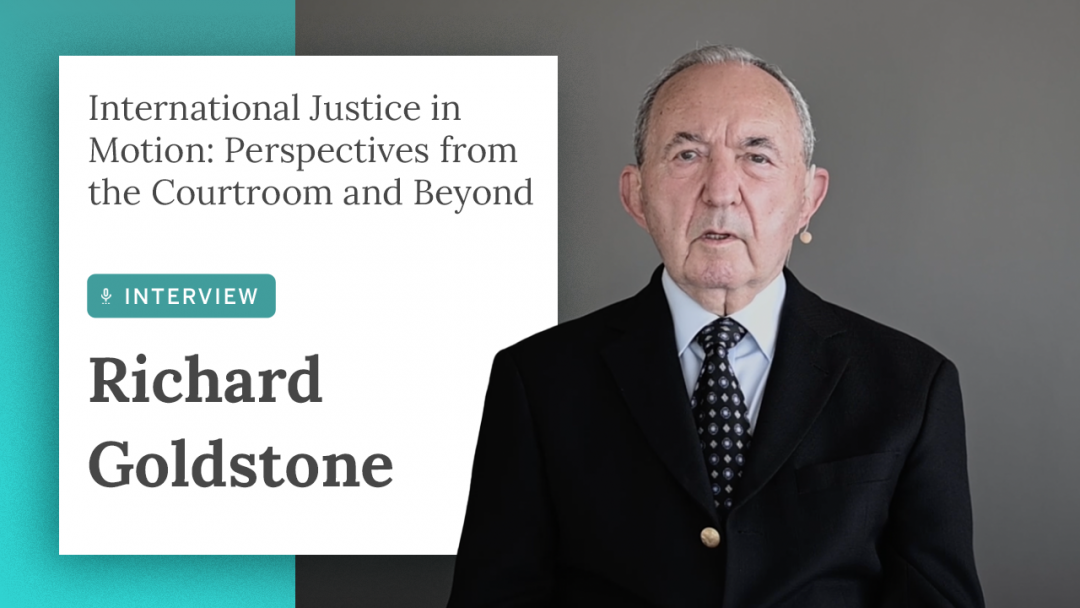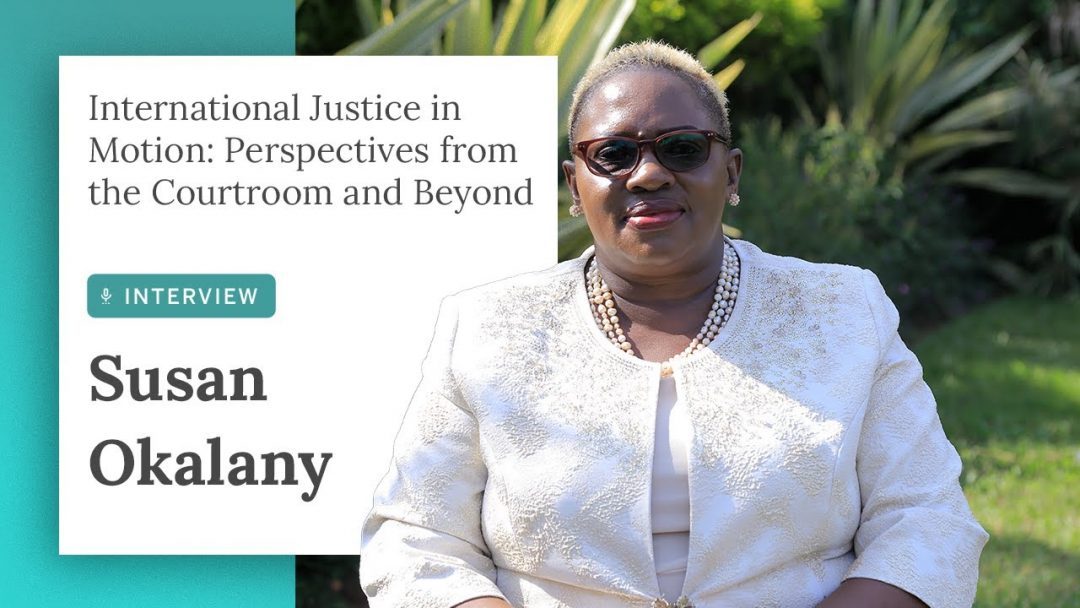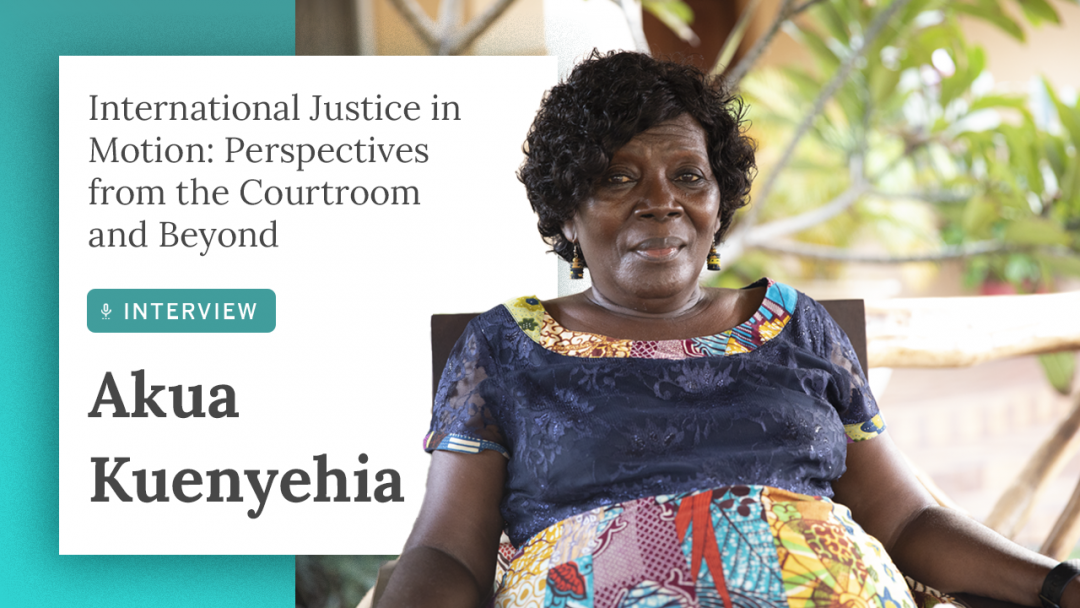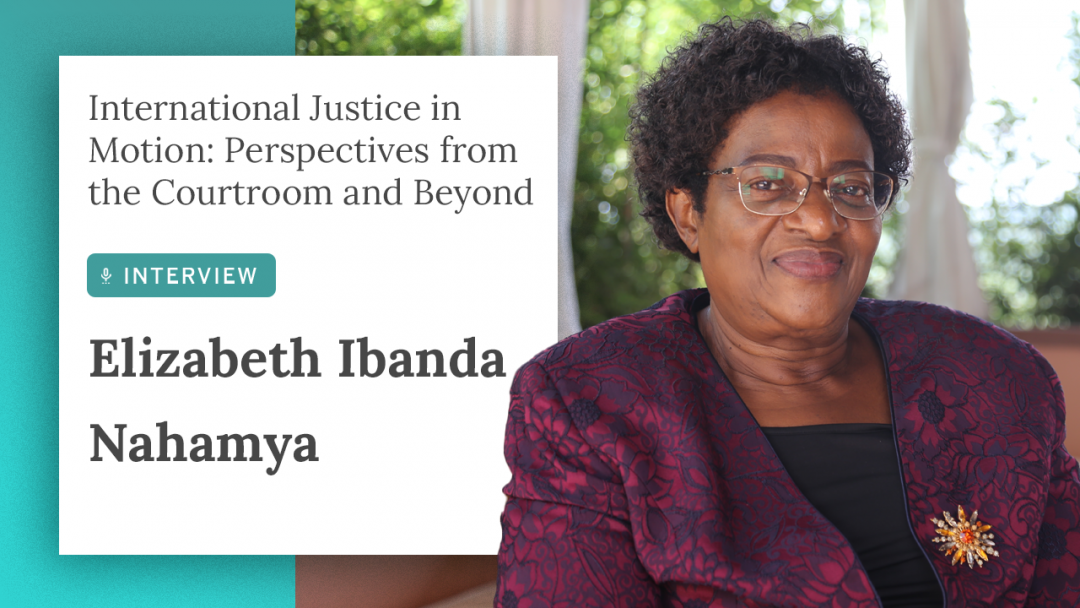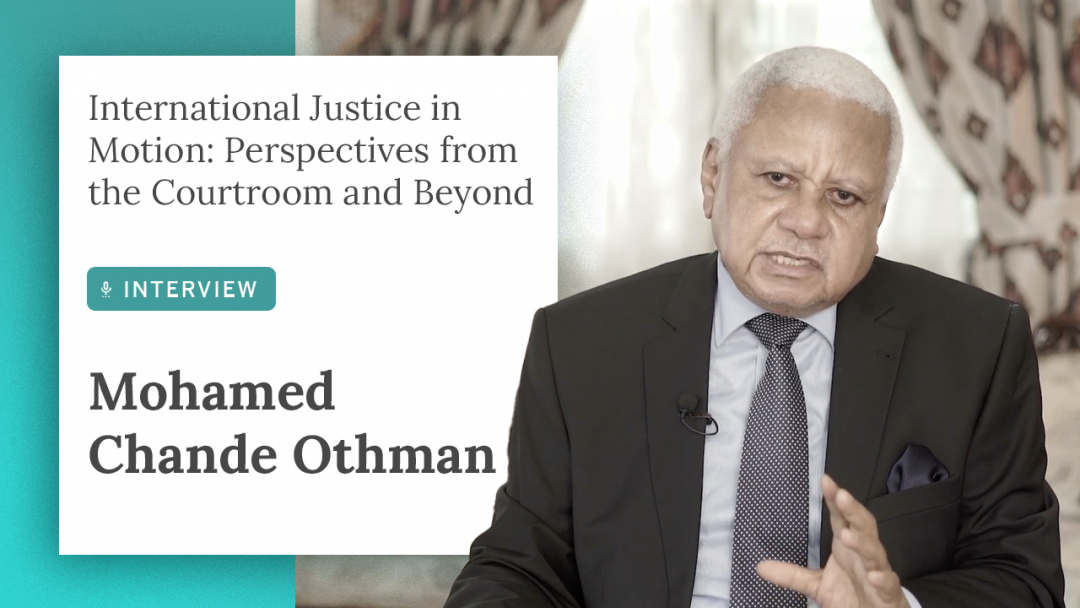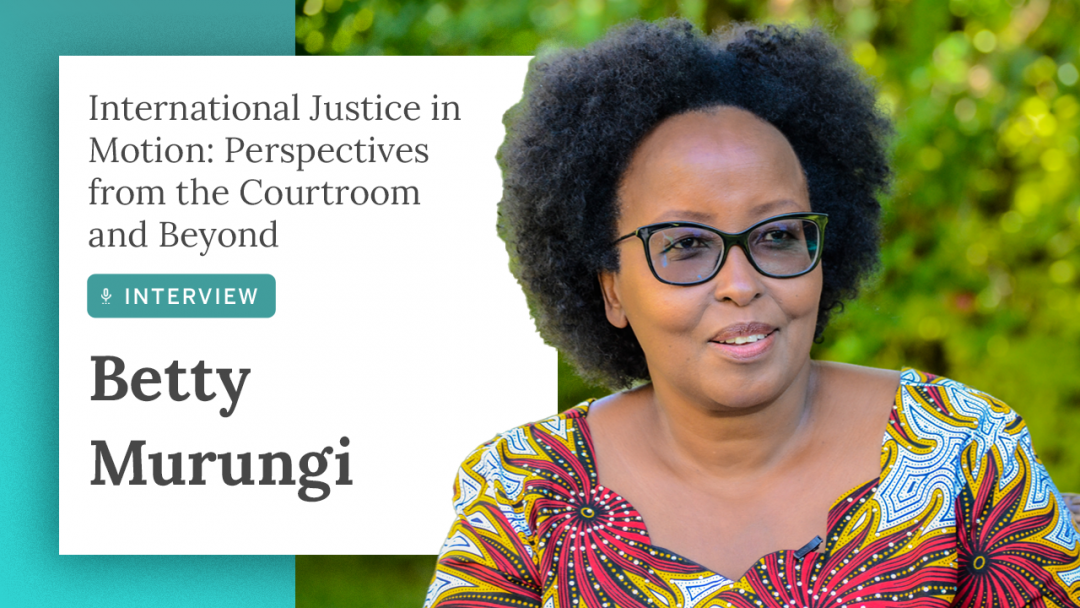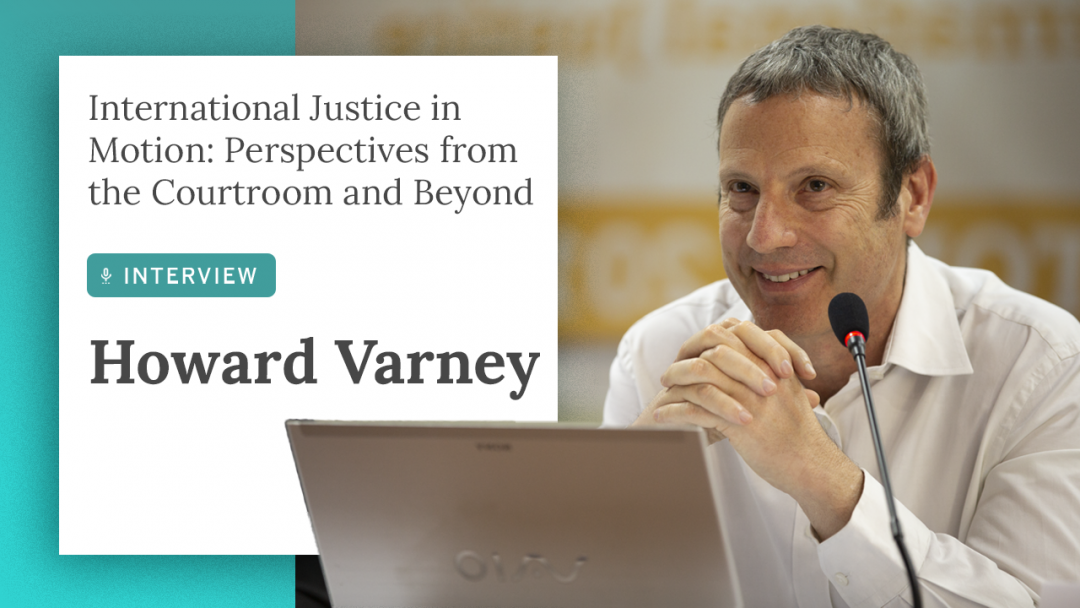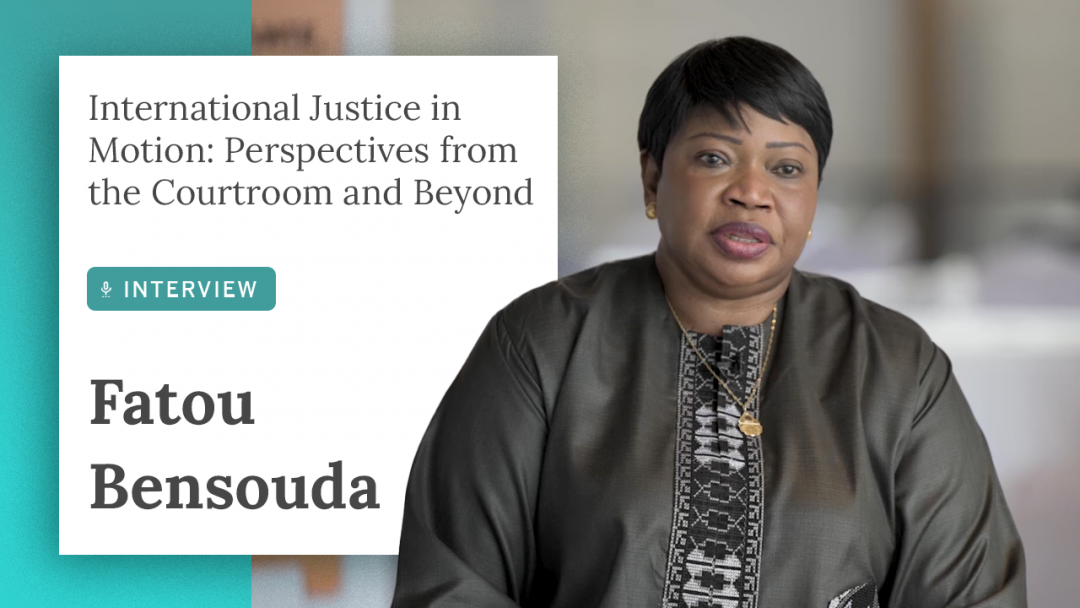On International Justice Day, Mohamed Othman Chande and Mark Kersten highlight the importance for the ICC to use the lessons learned in Ukraine to help deliver justice in Africa.
International Justice in Motion – Perspectives from Nigeria and Beyond
Nigerian Federal High Court Judge Binta Nyako talks about justice and accountability for crimes committed by Boko Haram in Nigeria.
International Justice in Motion – Perspectives from South Africa and Beyond
Richard J. Goldstone, Former Justice at South Africa’s Constitutional Court and founding Chief Prosecutor of the ICTR and ICTY, shares his thoughts on the role of the judiciary in defending human rights and the rule of law during apartheid in South Africa. Judge Goldstone also discusses the relationship between the ICC and African states, as well as the future of international criminal justice on the African continent.
International Justice in Motion – Perspectives from Uganda and Beyond
Susan Okalany is a judge at the International Crimes Division (ICD) of the High Court of Uganda. In this interview, she discusses the challenges judges face when adjudicating international crime cases at the ICD.
International Justice in Motion – Perspectives from the ICC and Beyond
Akua Kuenyehia, former First Vice-President and Judge of the ICC, discusses the importance of judicial independence and the rule of law when adjudicating international crime cases. She talks about the future of the ICC-Africa relationship and what needs to be done to see judicial systems across Africa adjudicating international crimes domestically.
International Justice in Motion – Perspectives from Uganda and Beyond
Elizabeth Ibanda Nahamya is a judge at the United Nations International Residual Mechanism for Criminal Tribunals (IRMCT). She discusses how IRMCT jurisprudence is also being used by domestic jurisdictions in Africa to prosecute and adjudicate international crimes.
International Justice in Motion – Perspectives from Tanzania and Beyond
Mohamed Chande Othman, former Chief Justice of Tanzania, discusses the legacy and impact of the ICTR in terms of what this means for the application of international criminal law in Africa. He describes how national jurisdictions can integrate ICTR jurisprudence into their own national systems to better adjudicate international crimes domestically. The former Chief Justice shares his thoughts on the major challenges facing the judiciary in Tanzania, and on other issues, such as judicial independence, the rule of law, and the future of the adjudication of international crimes cases on the African continent.
International Justice in Motion – Perspectives from Kenya and Beyond
Betty Murungi, transitional justice expert and Advocate of the High Court of Kenya, discusses accountability for cases involving gender-based violence on the African continent, with specific attention to the impact of the recent trial of those responsible for sexual violence crimes committed during the post-election violence in Kenya. Other topic areas covered are accountability mechanisms in Sierra Leone and South Sudan, judicial independence, the rule of law, and the future of the adjudication of international crimes cases on the African continent.
International Justice in Motion – Perspectives from South Africa and Beyond
Howard Varney, Senior Programme Adviser at the International Centre for Transitional Justice, discusses how apartheid crimes can be prosecuted in local courts in South Africa, and whether apartheid can be tried as a crime against humanity. In addition, he talks about judicial independence, the rule of law, and the future of the adjudication of international criminal cases on the African continent.
International Justice in Motion – Perspectives from the ICC and Beyond
Fatou Bensouda, former Prosecutor of the International Criminal Court (ICC), discusses the importance of judicial independence and the rule of law in highly politicised trials. She talks about the challenges she faced as ICC Prosecutor and how she coped with the pressure. She also discusses the impact of the ICC’s jurisprudence on international criminal justice in Africa, the importance of state cooperation, complementarity, and the role of domestic jurisdictions in fighting impunity.
- Page 1 of 2
- 1
- 2

